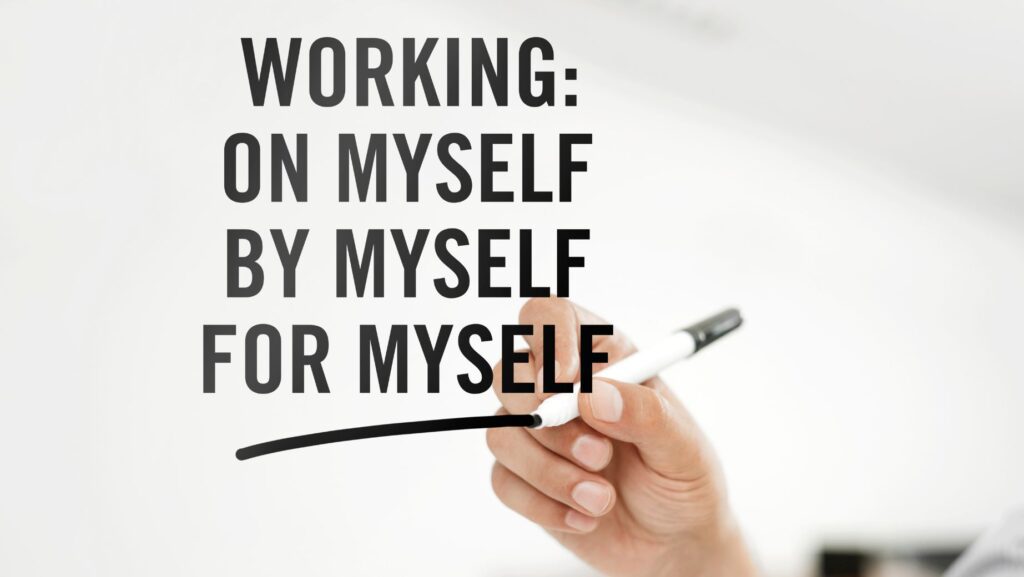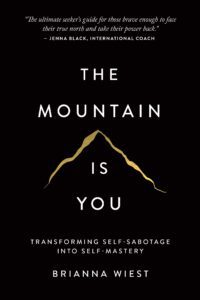
Are you tired of feeling stuck and unfulfilled, trapped in patterns of self-sabotage that keep you from achieving your dreams? Do you long to break free from the limitations that hold you back and unlock your full potential? If so, then this is the ultimate guide to self-discovery and self-mastery you’ve been searching for.
Throughout the ages, individuals have sought to understand the mysteries of the self and achieve mastery over their thoughts, emotions, and behaviors. From ancient philosophers to modern psychologists, experts have delved deep into the human psyche to uncover the secrets of self-growth and transformation.
Part 1: Understanding Self-Discovery

What is Self-Discovery?
Self-discovery is the process of deepening your understanding of yourself and uncovering your true identity, passions, values, and purpose. It is an ongoing journey of exploration and self-awareness that allows you to align your thoughts, emotions, and behaviors with your deepest aspirations.
The Importance of Self-Discovery
Self-discovery is the foundation upon which self-mastery is built. Without a deep understanding of ourselves, we cannot hope to overcome the patterns of self-sabotage and unlock our full potential.
When we explore our inner selves with curiosity and openness, we gain insight into our strengths, weaknesses, desires, and fears. We begin to see ourselves more clearly, with greater clarity and compassion. This newfound awareness allows us to set meaningful goals, make conscious choices, and build a life that is true to our unique purpose.
How to Begin Your Self-Discovery Journey
Starting your self-discovery journey can be overwhelming. Here are some tips to help you get started:
- Make time for introspection. Carve out a few minutes each day to reflect on your thoughts and emotions.
- Get to know yourself. Engage in activities that allow you to explore your interests, strengths, and weaknesses.
- Journal your thoughts and feelings. Write down your thoughts, emotions, and reflect on things that triggered specific emotions.
- Seek outside perspectives. Talk to people close to you who can provide constructive feedback, or look for a mentor or a coach to guide you.
Insights from "The Mountain Is You" by Brianna Wiest
In her book “The Mountain Is You: Transforming Self-Sabotage Into Self-Mastery,” Brianna Wiest provides valuable insights on how to overcome self-sabotage and cultivate self-mastery. Here are some key points from the book:
1. Understanding Self-Sabotage
- Self-sabotage is often a result of deeply ingrained patterns and beliefs developed in response to past experiences.
- It is important to recognize that self-sabotage is not a reflection of our worth or abilities, but rather a learned coping mechanism.
- By becoming aware of the self-sabotaging patterns and understanding their roots, we can begin to break free from their grip.
2. Embracing the Growth Mindset
- Cultivating a growth mindset is essential in overcoming self-sabotage and achieving self-mastery.
- Embrace the belief that our abilities and skills can be developed through hard work, perseverance, and practice.
- View challenges as opportunities for growth and learning, rather than obstacles to be avoided.
- Embrace failure as a natural part of the learning process and use it as an opportunity for reflection and improvement.
3. Cultivating Self-Compassion
- Self-compassion is a vital component of self-mastery. It involves treating oneself with kindness, understanding, and acceptance.
- Practice self-compassion by acknowledging your emotions, validating your experiences, and offering yourself forgiveness and understanding.
- Replace self-criticism with self-compassion, recognizing that mistakes and setbacks are part of the growth process.
4. Shifting from Victimhood to Empowerment
- Take ownership and responsibility for your life, thoughts, and actions. Shift from a victim mindset to an empowered mindset.
- Recognize that you have the power to change your circumstances and create the life you desire.
- Identify and challenge limiting beliefs and negative self-talk that perpetuate self-sabotage.
- Set clear boundaries, develop assertiveness, and make choices that align with your values and goals.
5. The Power of Mindset and Visualization
- Develop a positive mindset by cultivating gratitude, focusing on possibilities, and reframing challenges as opportunities for growth.
- Visualization is a powerful tool for goal setting and self-mastery. Create vivid mental images of your desired outcomes and embody them as if they have already been achieved.
- Use visualization as a tool for motivation, holding yourself accountable, and maintaining focus on your goals.
Part 2: Overcoming Self-Sabotage

What is Self-Sabotage?
Self-sabotage is the act of undermining our goals and aspirations through negative thoughts and behaviors. It can take many forms, including procrastination, fear of failure, self-doubt, and self-criticism. Self-sabotage holds us back, preventing us from reaching our full potential and achieving our dreams.
The Power of Personal Responsibility
Taking personal responsibility is crucial to overcoming self-sabotage. When we acknowledge that we are the ones standing in our way, we become empowered to take control of our lives and make conscious choices that align with our goals and values.
By taking responsibility for our thoughts and actions, we shift from a victim mindset to an empowered mindset. We become the drivers of our own destiny, no longer held captive by self-sabotaging behaviors.
The Role of Limiting Beliefs
Limiting beliefs are the ingrained thoughts and beliefs about ourselves and the world around us that constrain our growth and perpetuate self-sabotage. Wiest challenges us to identify and challenge these limiting beliefs, allowing us to break free from their suffocating grip.
Through powerful exercises and introspection, we can unravel our self-imposed limitations. By questioning the validity of these beliefs, replacing them with empowering thoughts, and reframing our perspectives, we can unleash our true potential and embrace a life filled with success and fulfillment.
The Power of Mindfulness
Mindfulness is a transformative practice that can help us overcome self-sabotage and uncover our true potential. By practicing present-moment awareness, we become attuned to our thoughts, emotions, and behaviors. This heightened self-awareness allows us to recognize the self-sabotaging patterns that arise and make conscious choices that align with our goals and values.
Mindfulness helps us navigate challenges and setbacks with grace, maintain focus on our goals, and break free from the chains of self-sabotage.
The Transformative Power of Visualization
Visualization is a potent technique that taps into the power of our subconscious mind. By vividly imagining and embodying our desired outcomes, we align our thoughts, emotions, and actions with success. Visualization is a powerful tool for goal setting; it helps you see the end goal as something tangible, something that is already in existence.
Visualization helps us hold ourselves accountable since we can vividly see the end goal in our mind’s eye. Visualization also aids in cultivating the right mindset for success. When we combine visualization with action, we can create the reality we desire and deserve.
Part 3: Self-Mastery - Nurturing Your Mind and Body

Self-Care and Well-Being
For every individual looking to attain self-mastery, self-care is not optional, but a necessity. Ultimately, it is impossible to realize our goals and aspirations while neglecting our physical, emotional, and psychological well-being. Self-care involves taking deliberate steps towards maintaining and improving our health, including proper nutrition, rest, exercise, and social interactions.
Self-care also involves paying attention to our emotional health. It is essential to give ourselves permission to feel emotions, to express emotions authentically, and to identify triggers that cause negative emotions and react positively. As we understand our emotions, we get to know ourselves better, and we can live a more authentic life that is true to who we are.
Emotional Intelligence
Emotional intelligence is the ability to identify and manage one’s own emotions and the emotions of others. It involves empathy, self-awareness, social skills, and self-regulation. Emotional intelligence is correlated with higher levels of happiness, resilience, and success.
Developing emotional intelligence requires cultivating awareness of our own emotions, practicing empathy and compassion towards others, and developing effective communication skills. As we strengthen our emotional intelligence, we become more resilient, better able to navigate challenging situations, and build stronger, more fulfilling relationships.
Setting and Achieving Goals
The journey of self-discovery and self-mastery cannot be complete without the full realization of one’s goals. After a thorough exploration of self and knowing what needs to be changed, the next step is goal setting. Goal setting involves being specific about what we need to achieve, creating steps towards achieving them, and setting timelines. While setting goals, it is also crucial to understand that these goals may change at some points in the journey. Goal-setting is a dynamic process that should be revisited and reassessed frequently to fit our constantly evolving needs.
Cultivating Growth Mindset
Finally, having a growth mindset is essential in self-mastery; it is a fundamental mindset that leads to success, happiness, resilience, and fulfillment. A growth mindset is the belief that our abilities and skills can be developed through hard work, perseverance, and practice.
People with a growth mindset believe that their intelligence, skills, and abilities can be developed. They tend to seek out challenges, embrace failure as an opportunity to learn, persist in the face of obstacles, and view criticism as constructive feedback. A growth mindset fosters a love of learning, creativity, and innovation. By cultivating a growth mindset, we can unleash our full potential and achieve self-mastery.
Conclusion
Self-discovery and self-mastery are lifelong journeys that require patience, persistence, and an unwavering commitment to personal growth. By exploring the techniques and strategies outlined in this ultimate guide and incorporating the insights from Brianna Wiest’s book, you have access to the tools and wisdom you need to achieve success and fulfillment.
Through self-discovery, you will gain a deep understanding of yourself that will allow you to overcome self-sabotage and unlock your full potential. By embracing personal responsibility, challenging limiting beliefs, practicing mindfulness, cultivating emotional intelligence, setting and achieving meaningful goals, and fostering a growth mindset, you can achieve true self-mastery.
We encourage you to embrace the journey of self-discovery and self-mastery with courage, curiosity, and compassion. As you deepen your understanding of yourself and align your thoughts, emotions, and behaviors with your true purpose, you will unlock a life filled with success and fulfillment. The power to transform your life lies within you -let this guide help you take the first steps towards the life you truly deserve.

